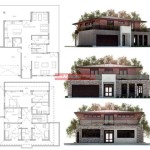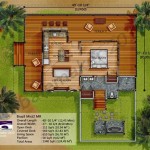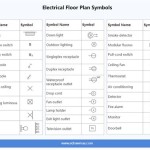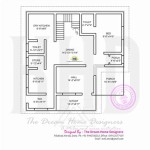Design A House Floor Plan: Essential Aspects
Designing a house floor plan is a crucial step in creating a home that meets your needs and lifestyle. It involves carefully considering various factors to ensure functionality, comfort, and aesthetics. Here are some essential aspects to keep in mind when designing a house floor plan:
1. Needs Assessment: Start by identifying your specific needs and requirements. Consider the number of bedrooms, bathrooms, and other spaces required. Determine the size and arrangement of rooms based on your family size, lifestyle, and daily routines.
2. Site Analysis: The site's characteristics can influence the floor plan design. Consider the topography, orientation, and any existing structures or environmental factors. Determine the best location for the house, taking into account desired views, natural light, and potential building constraints.
3. Functional Flow: The floor plan should facilitate efficient movement throughout the house. Create logical adjacencies between rooms based on their functions. For example, place the kitchen near the dining area and the bedrooms on the same level.
4. Space Allocation: Determine the appropriate size and shape of each room based on its intended use. Consider furniture arrangements and circulation space. Allocate sufficient space for essential areas like the kitchen, bathrooms, and living room, while optimizing the use of compact spaces.
5. Natural Light and Ventilation: Maximize natural light and ventilation in the floor plan. Position windows strategically to allow ample sunlight into living areas, bedrooms, and bathrooms. Consider cross-ventilation to promote air flow and reduce energy consumption.
6. Energy Efficiency: Incorporate energy-efficient features into the floor plan. Consider passive design strategies such as solar orientation, thermal insulation, and proper shading to minimize energy usage. Plan for efficient HVAC systems and lighting arrangements.
7. Aesthetics and Style: The floor plan should reflect your personal taste and style. Choose an architectural style that complements the surrounding environment and your preferences. Consider the overall flow and visual appeal of the floor plan, ensuring a cohesive and aesthetically pleasing design.
8. Future Expansion: Consider future needs and potential expansion when designing the floor plan. Plan for flexibility and adaptability to accommodate future changes, such as adding bedrooms or extending the living area. Provide extra space or unfinished areas that can be easily converted for future use.
9. Accessibility: Ensure the floor plan is accessible to all occupants, including individuals with disabilities. Consider ramps, wider doorways, and accessible bathrooms to provide safe and comfortable movement throughout the house.
10. Professional Assistance: Consider consulting with a licensed architect or designer for professional guidance and expertise. They can assist you in developing a detailed and functional floor plan that meets your specific requirements and building codes.

House Plans How To Design Your Home Plan

Floor Plans Types Symbols Examples

Small House Design 2024005 Pinoy Eplans Modern Plans Floor

Small House Design Shd 2024007 Pinoy Eplans One Y Bungalow Plans Layout

28 Modern House Designs Floor Plans And Small Ideas

House Plans How To Design Your Home Plan

Check Out These 3 Bedroom House Plans Ideal For Modern Families

Est House Plans To Build Simple With Style Blog Eplans Com

Two Y House Phd 2024011 Home Design Floor Plans Double

Creating The Perfect Floor Plan Quarry View Building Group








